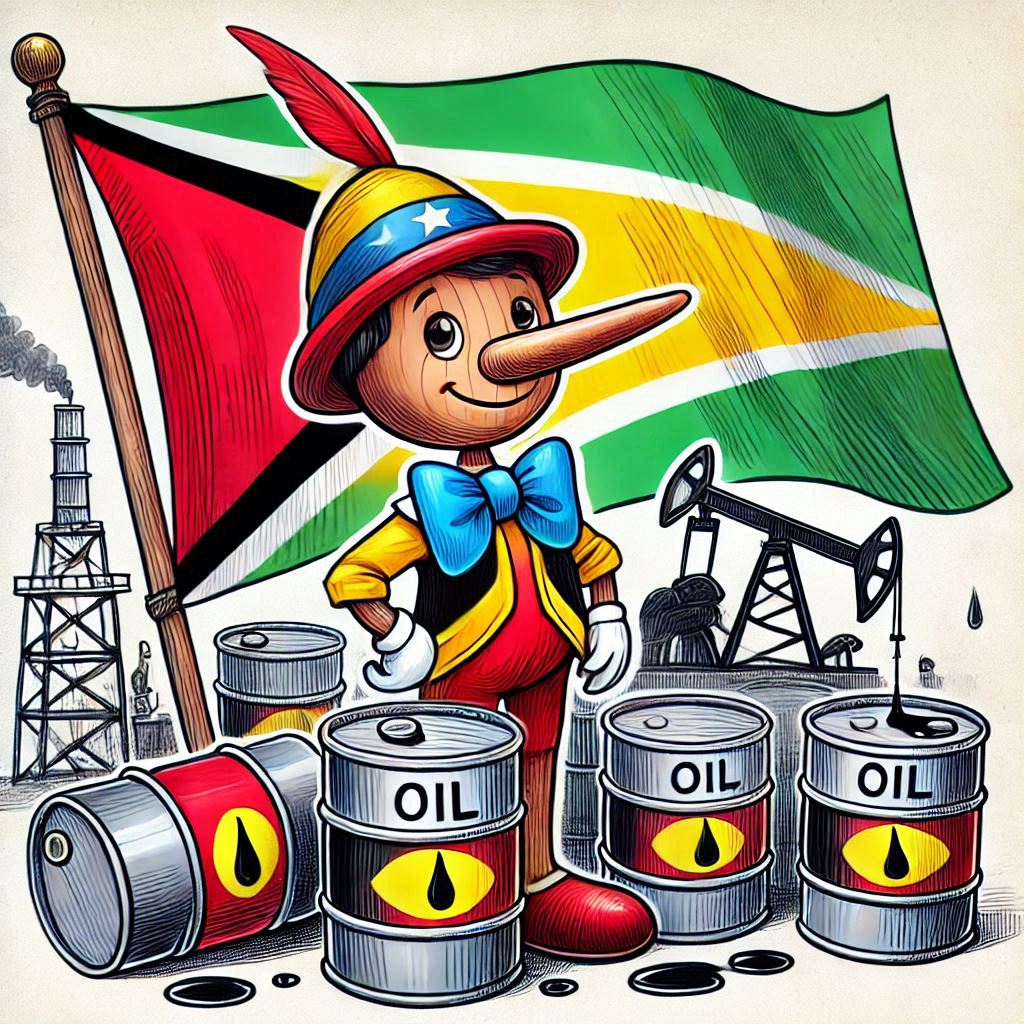Former head of the local Environmental Protection Agency (EPA), Dr. Vincent Adams, has warned that Guyana must safeguard itself against what he described as “watered down language” that could possibility weaken the country’s abilities to hold oil companies operating in the Stabroek Block, from fully accepting their responsibility in the unfortunate event of an oil spill or other negative environmental occurrences.
Former EPA boss, Vincent Adams tells Guyana to watch Exxon and its language.
Dr. Adams was referring directly to the recently granted EPA environmental permit to ExxonMobil’s subsidiary, Esso Exploration and Production Guyana Limited (EEPGL), which clears the company for operations at its Yellowtail well set for production start-up in about two years. Adams has pointed to language that he is convinced could diminish the country’s legal powers to ensure ExxonMobil and its subsidiary adhere to their responsibility.
The former EPA boss said that based on his perusal of the recently granted environmental permit and recent utterances by Exxon’s President, Alistair Routledge, on the matter of “legitimate cost,” government needs to flesh out the details behind what is meant by legitimate cost and who determines what legitimate cost is. He said that with talks about full coverage, parent company guarantee and insurance, it would now appear that the company wants to be the one to define what it sees as legitimate and what’s not.
“Everything is legitimate,” Dr. Adams said, “any cost that is associated with the spill has to be covered because if a spill did not occur you would not have had damages, so it is all associated.” Adams related that he is unaware as to why there should be a differentiation between what is legitimate when the cost would be arriving from the actions of the oil companies that would have caused the spill during their operations. “But that is the kind of trickery that they try to play. So we need to hold their feet to the fire,” Adams suggested.
He said that Exxon and the government really didn’t have a choice and had to ensure the applications in the permit given the pressure that came from civil society. “But this whole thing about what is legitimate cost, it now needs to be another topic of contention. They should not be differentiating as to what is legitimate. All cost associated with a spill is legitimate cost that they have to cover it.”
Adams accused the oil company of playing games because now, he said, “they are trying to finesse what’s in the language to get out of it (full responsibility) and we should not be allowing it. They are to know that the same set of people, civil society, the newspapers and ordinary citizens will keep after it to do what is right for Guyana.”
On Friday, the EPA announced that it had granted EEPGL its Yellowtail permit. Yellowtail is its fourth development at the Stabroek Block. Section 15 (1) and (2) of the permit says that, “The Permit Holder is liable for all costs associated with the cleanup, restoration and compensation for any damages caused by any discharge of any contaminant including the cost of all investigations into pollution incidents or discharge of contaminants, conducted at the instance of the Agency.”
It provides further that, “The Permit Holder shall provide and/or declare within reasonable time upon signing of this permit a combination of the following forms of financial assurance to cover all its legitimate liabilities under this permit…”
Routledge had said during a briefing held with reporters last month that, “The value of insurance will not limit the company’s ability to respond to an (oil spill) event, and response activities would certainly not be delayed by discussions with insurers. We have the financial capacity to meet our responsibilities for an adverse event and we are committed to paying all legitimate costs in the unlikely event of an oil spill.”
ExxonMobil had sought to give assurance, stating that the technical and financial resources are in place in the unlikely event of an oil spill. The company said too that it adheres to an internationally accepted tiered response system used to determine the requirements of response personnel and equipment and that that system remains aligned with the principles of the International Convention on Oil Pollution Preparedness, Response and Cooperation (OPRC), the Caribbean Island Oil Pollution Preparedness Response and Cooperation (OPRC), and the National Oil Spill Response Plan of Guyana to provide an efficient framework to build preparedness and response capabilities matching the oil spill risks from all types of operations.
As it stands Exxon’s subsidiary EEPGL has a $2B sum to address oil spill response. However, particularly civil society believes this sum is inefficient and has been demanding that the government ensure the oil company’s parent company put into writing assurances that it will step in beyond the $2B sum to rectify the effects of any possible environmental hazard.
Original article published here: https://www.kaieteurnewsonline.com/2022/04/03/guard-against-watered-down-language-that-weakens-oil-and-gas-insurance-rights-former-epa-boss-warns/










